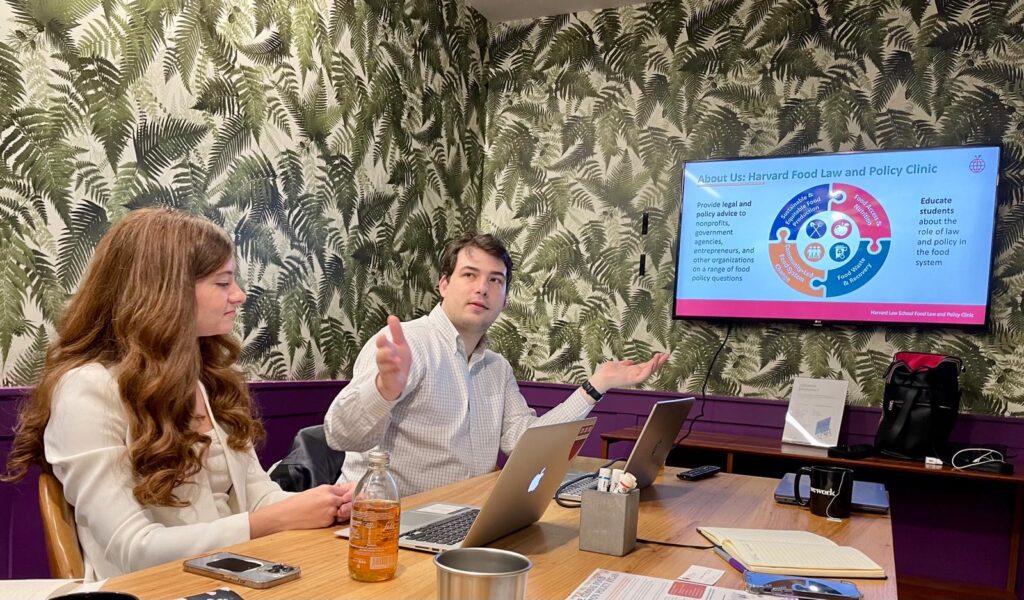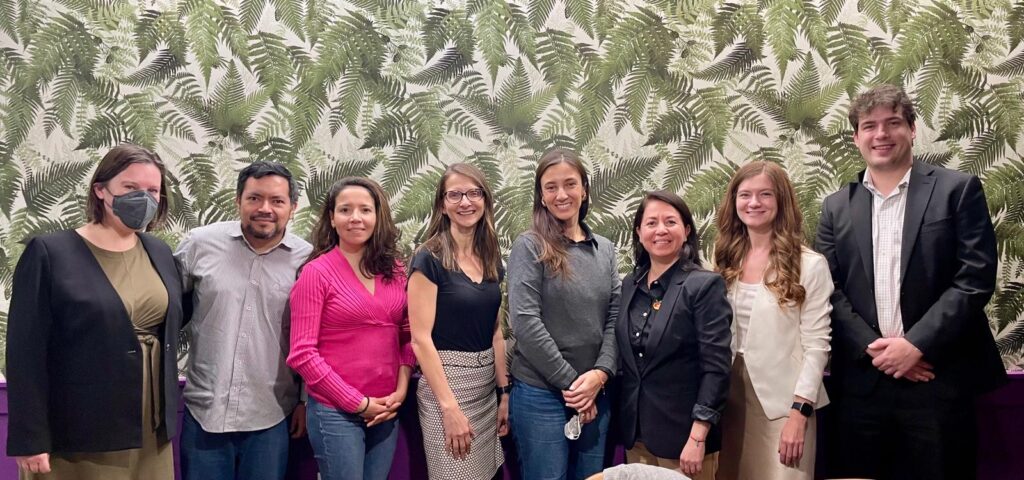By: Hudson Bennett, Food Law and Policy Clinic (FLPC) Student, Fall 2023
In November, four members of the Global Food Donation Policy Atlas team went to Mexico City to further our work in assisting organizations working to reduce food loss and waste in Mexico. We met with several in-country partners and were hosted by el Red de Bancos Alimentos de Mexico (BAMX), a network of 57 food banks throughout Mexico. The trip gave us an opportunity to learn about the state of food donation in Mexico and listen to those incredibly familiar with the circumstances in which donation is carried out, while also getting to experience the wealth of cultural, historical, and culinary artifacts that Mexico City has to offer.

On our first night, my fellow student partner Mady Womack and I went on a taco tour in Condesa, a neighborhood in the city. A local guide took us to three taco spots, an empanada stand, and a noted churro restaurant. All the while we discussed differences and similarities between our countries: the upcoming election season and its importance, the state of public education, and the increasing prevalence of large companies buying real estate were just a few of the topics we were privileged enough to hear about from him.
The next day, Sunday, the whole team went to the National Museum of Anthropology (Museo Nacional de Antropología), which was one of the best museums I have ever visited. We saw artifacts produced centuries ago by the Olmec, Aztec, Mayan, Oaxaca, and other civilizations, and it was hard not to feel a childlike wonder at the beauty and scale of the art and sculptures. From the Aztec Calendar to an Olmec Stone Head, experiencing these wonders of ancient civilizations was transcendent and humbling. The museum was a masterpiece of hybridization—combining original structures with recreations of living conditions—that both connected us to the past and reminded us that some issues (such as human impact on wilderness) have been around for millennia.

That night we ate seafood, which was predictably exceptional, and then we woke up the next day to meet with BAMX and its partners to present our work and hear about their own. Some topics we discussed were the mechanisms of regulation in Mexican food labeling law, as well as how best the Global Food Donation Policy Atlas project can assist their mission to increase food donation in Mexico going forward. That afternoon we met with a consulting group and discussed some challenges each dimension of the food system in Mexico faces in decreasing food waste. After some incredible sushi that night, we went back to the hotel and prepared for the next day’s meetings.
In our last full day in Mexico City, we finalized our next steps in meetings with BAMX and discussed further with large-scale producers what policy changes they need to increase donations. Mady and I went shopping at a local bazaar, and we all met up that evening for one more round of tacos. As our flight early the next morning loomed, we took one last stroll down Paseo de la Reforma, took our last look at the magnificent Angel of Independence, and finalized our next steps back in Cambridge.


Health Law & Policy, Commentary
Braidwood Management v. Becerra: Updated FAQs for Health Advocates and Providers
July 22, 2024